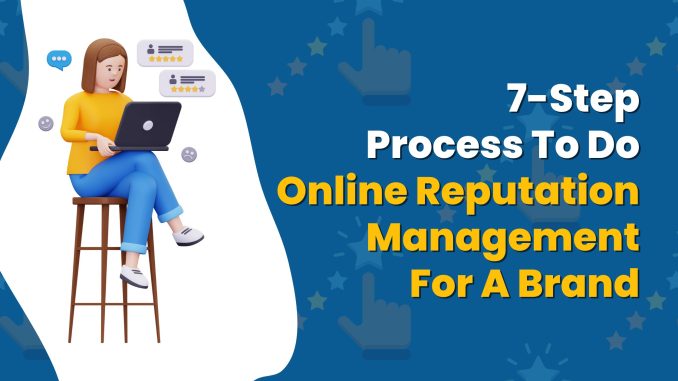
In today’s interconnected digital landscape, a business’s reputation is no longer solely built on word-of-mouth in the local community; it is meticulously crafted and, at times, precariously balanced on the vast and volatile expanse of the internet. From review platforms and social media channels to news articles and forums, every online mention contributes to a brand’s public image. Managing this online reputation isn’t merely a reactive measure against negativity; it’s a proactive, ongoing strategic imperative that influences everything from customer trust and sales to talent acquisition and investor confidence. Ignoring your online reputation is akin to ignoring a gaping hole in your foundation – eventually, the entire structure will be compromised.
One of the cornerstones of effective online reputation management is **proactive monitoring**. You cannot address what you don’t know exists. This involves systematically tracking mentions of your brand, products, services, and even key personnel across various digital channels. Tools ranging from simple Google Alerts to sophisticated media monitoring software can help you keep an eye on review sites like Yelp and TripAdvisor, social media platforms like X (formerly Twitter) and Facebook, industry forums, news outlets, and blogs. The goal is to identify both positive and negative sentiment in real-time, allowing for swift responses. Imagine a customer posts a complaint about a slow delivery on X; proactive monitoring allows you to address it directly and publicly, turning a potential crisis into an opportunity to demonstrate responsiveness and excellent customer service.
Beyond monitoring, **active engagement and responsiveness** are crucial. Simply knowing what’s being said isn’t enough; you must participate in the conversation. This means responding promptly and professionally to all reviews, comments, and mentions, whether positive or negative. For positive feedback, a simple “thank you” acknowledging the compliment reinforces customer loyalty and shows appreciation. For negative comments, the approach must be empathetic, apologetic (if appropriate), and solution-oriented. Never engage in a public argument or become defensive. Instead, acknowledge the customer’s frustration, express regret for their experience, and offer to move the conversation offline to resolve the issue directly. For instance, if a restaurant receives a poor review about a specific dish, a professional response would thank the customer for their feedback, apologize for the disappointment, and invite them to contact management to discuss their experience further, demonstrating a commitment to improvement. This public display of accountability can often mitigate the damage of negative feedback and even convert a disgruntled customer into a loyal advocate.
Furthermore, **cultivating positive content** is an essential offensive strategy in online reputation management. This involves actively creating and promoting content that highlights your brand’s strengths, successes, and positive contributions. This could include publishing compelling blog posts, sharing customer success stories and testimonials, creating engaging video content, issuing press releases about company milestones or charitable initiatives, and maintaining an active, informative presence on social media. The more positive, authoritative, and relevant content associated with your brand, the more it will push down any potentially negative or less desirable search results. If a prospective client searches your company name, you want them to find a wealth of positive information that showcases your value and expertise, rather than isolated complaints.
Encouraging and managing **customer reviews** is another powerful element. Online reviews are often the first point of reference for potential customers, and their collective weight can significantly impact purchasing decisions. Proactively ask satisfied customers to leave reviews on relevant platforms (e.g., Google My Business, industry-specific sites). Make the process easy and accessible. Equally important is managing these reviews once they appear. Address negative reviews gracefully, as discussed, but also leverage positive reviews. Share testimonials on your website and social media, celebrating your customers’ experiences. High average ratings and a large volume of positive reviews build social proof and act as powerful endorsements from your customer base.
Beyond direct customer interaction, **building a strong online presence and thought leadership** through various digital channels contributes significantly to your reputation. This means having a professional, optimized website, maintaining active profiles on relevant social media platforms, and potentially engaging in public relations efforts to secure positive media coverage. Contributing expert articles to industry publications, participating in online forums as a knowledgeable resource, or speaking at virtual events can establish your brand and its leaders as authorities in your field. This level of visible expertise and credibility elevates your reputation beyond basic customer service, positioning you as a trusted and influential entity within your industry.
Finally, managing online reputation requires a commitment to **consistency and authenticity**. Inconsistency in messaging or a disconnect between your online persona and real-world actions can quickly erode trust. Be genuine in your interactions, transparent about your values, and consistent in your efforts. Reputation management is not a one-time fix but an ongoing commitment that requires dedication and vigilance. It means having a clear strategy, allocated resources, and designated personnel responsible for maintaining your brand’s digital image.
In conclusion, in an age where digital footprints are indelible, managing your business’s online reputation is no longer an option but a core strategic imperative. By actively monitoring online conversations, engaging promptly and professionally with feedback, proactively creating positive content, strategically managing customer reviews, and building a robust online presence as a thought leader, businesses can not only mitigate risks but also transform their digital reputation into a powerful asset. This proactive and continuous effort ensures that your brand’s narrative is shaped by your values and successes, fostering trust, driving customer loyalty, and ultimately paving the way for sustained business growth.